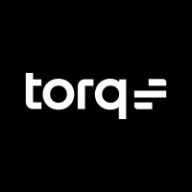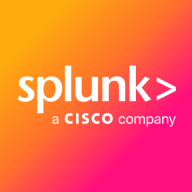


Splunk SOAR and Microsoft Sentinel are competitors in the security operations and orchestration platform category. Currently, Microsoft Sentinel seems to have a competitive edge due to its seamless integration with Microsoft products and cost-effective pay-as-you-go pricing model.
Features: Splunk SOAR offers flexible integrations, robust automation playbooks, and easy-to-use interfaces for streamlined workflows. On the other hand, Microsoft Sentinel provides a seamless experience within the Microsoft ecosystem and excels in threat detection through AI and machine learning capabilities.
Room for Improvement: Splunk SOAR could enhance integration options with communication tools and improve its built-in documentation and automation features. Microsoft Sentinel could work on better integration efforts outside of Microsoft's ecosystem and address complex pricing and data ingestion costs while adding more industry-specific analytics rules.
Ease of Deployment and Customer Service: Splunk SOAR offers flexible deployment in cloud and on-premises environments with responsive technical support, while Microsoft Sentinel leverages the public cloud for centralized management. Users, however, find Microsoft Sentinel setup complex due to broad integration capabilities, though both products provide excellent documentation and customer service.
Pricing and ROI: Splunk SOAR is known for its substantial costs with a user-based pricing model, although users cite good ROI due to automation efficiencies. Microsoft Sentinel's pay-as-you-go pricing is considered cost-effective for companies within the Microsoft ecosystem, though high costs for data ingestion can be challenging, despite its valued comprehensive capabilities.
| Product | Mindshare (%) |
|---|---|
| Microsoft Sentinel | 12.2% |
| Splunk SOAR | 8.0% |
| Torq | 4.2% |
| Other | 75.6% |


| Company Size | Count |
|---|---|
| Midsize Enterprise | 3 |
| Large Enterprise | 4 |
| Company Size | Count |
|---|---|
| Small Business | 38 |
| Midsize Enterprise | 22 |
| Large Enterprise | 45 |
| Company Size | Count |
|---|---|
| Small Business | 12 |
| Midsize Enterprise | 7 |
| Large Enterprise | 35 |
Torq is the enterprise AI SOC solution that effectively combines adaptive insights and automation to handle critical threats efficiently. It manages threat lifecycles, swiftly moving from triage to response, ensuring effective risk management.
Torq is designed to streamline security operations by aggregating telemetry across your security stack. It investigates significant risks and manages threats from triage to containment and remediation. This AI-driven tool enhances the capabilities of your SecOps team, allowing them to achieve more impactful results without introducing complicated processes.
What are the key features of Torq?In industries like finance and healthcare, Torq shows effectiveness by adapting to specific risk scenarios often encountered in these fields. Its integration with existing infrastructures makes it a valuable asset for maintaining stringent security standards, essential for protecting critical data and operations in diverse high-stakes environments.
Microsoft Sentinel is a scalable, cloud-native, security information event management (SIEM) and security orchestration automated response (SOAR) solution that lets you see and stop threats before they cause harm. Microsoft Sentinel delivers intelligent security analytics and threat intelligence across the enterprise, providing a single solution for alert detection, threat visibility, proactive hunting, and threat response. Eliminate security infrastructure setup and maintenance, and elastically scale to meet your security needs—while reducing IT costs. With Microsoft Sentinel, you can:
- Collect data at cloud scale—across all users, devices, applications, and infrastructure, both on-premises and in multiple clouds
- Detect previously uncovered threats and minimize false positives using analytics and unparalleled threat intelligence from Microsoft
- Investigate threats with AI and hunt suspicious activities at scale, tapping into decades of cybersecurity work at Microsoft
- Respond to incidents rapidly with built-in orchestration and automation of common tasks
To learn more about our solution, ask questions, and share feedback, join our Microsoft Security, Compliance and Identity Community.
Splunk SOAR offers features like automation and orchestration of manual tasks, speeding up work, detection and response to advanced and emerging threats.
Automate manual tasks. Address every alert, every day. Establish repeatable procedures that allow security analysts to stop being reactive and focus on mission-critical objectives to protect your business.
Orchestrate and automate repetitive tasks, investigation and response to increase efficiency and productivity, and do more with the people you already have. Make a team of three feel like a team of 10.
Work faster with Splunk SOAR. Respond to threats in seconds. Lower your mean time to respond (MTTR) by automating security tasks and workflows across all of your security tools.
Take advantage of Splunk Enterprise Security and Splunk SOAR joining forces to provide a seamless and intuitive SecOps platform to prevent, detect and respond to advanced and emerging threats.
We monitor all Security Orchestration Automation and Response (SOAR) reviews to prevent fraudulent reviews and keep review quality high. We do not post reviews by company employees or direct competitors. We validate each review for authenticity via cross-reference with LinkedIn, and personal follow-up with the reviewer when necessary.